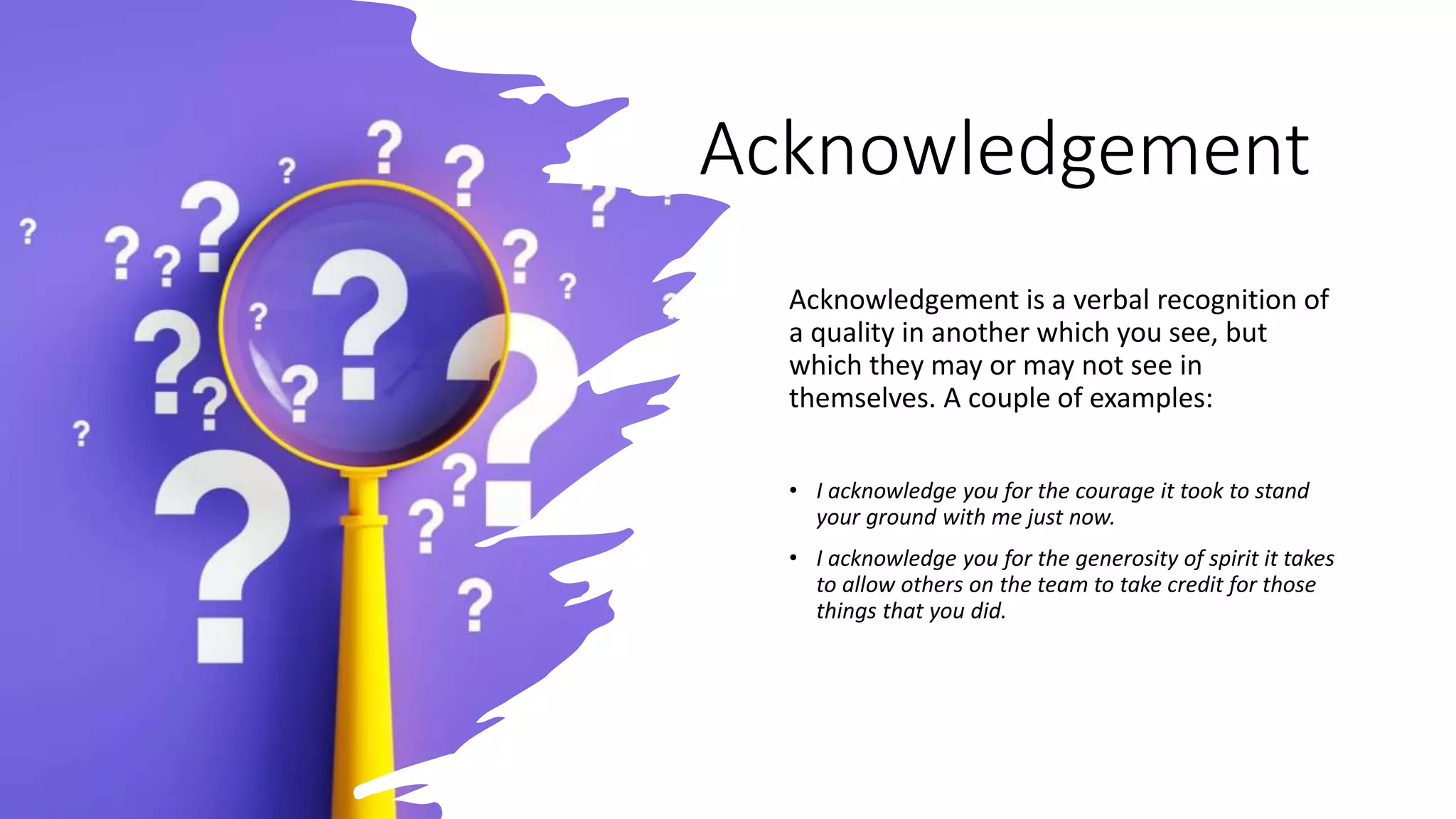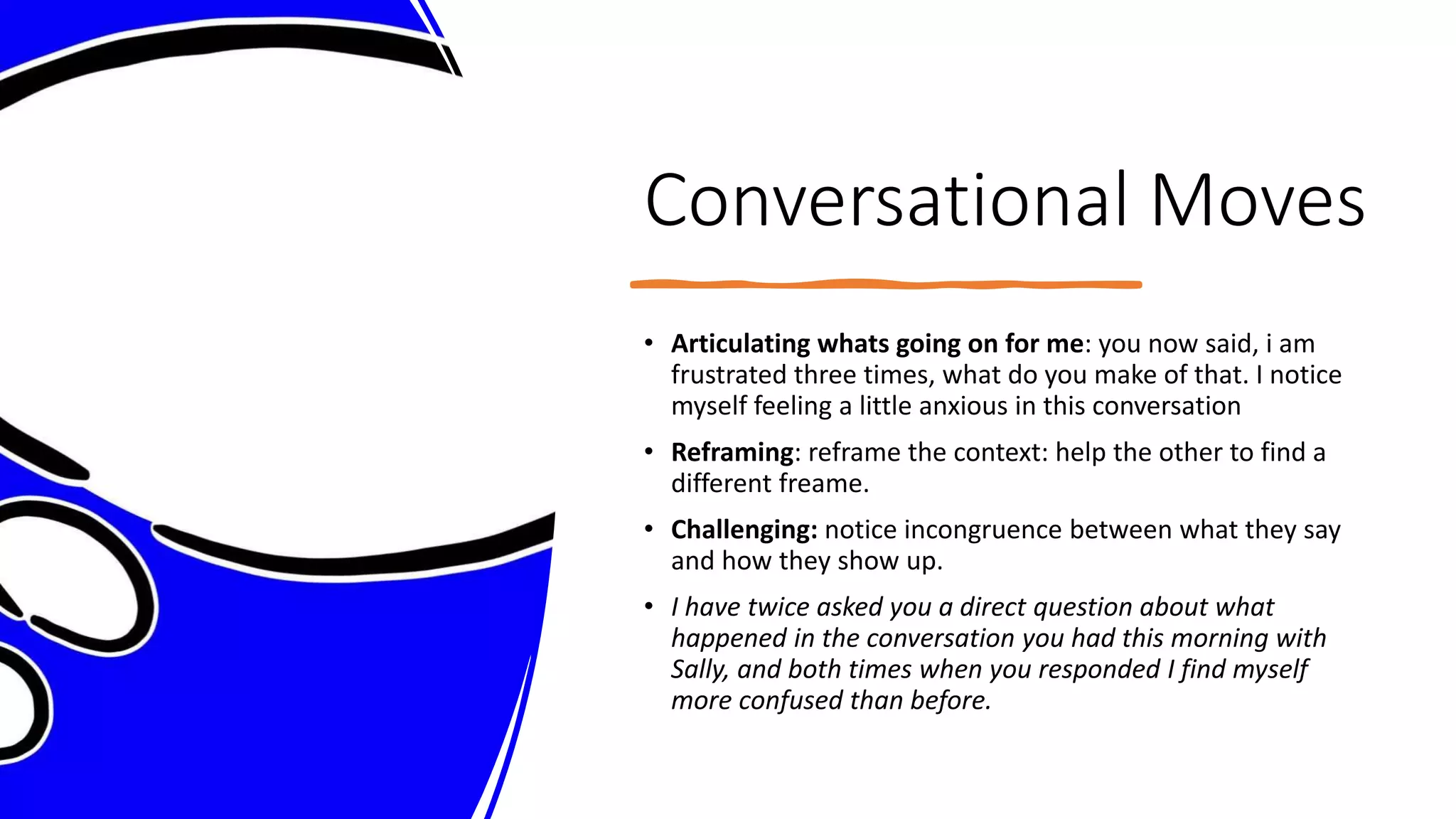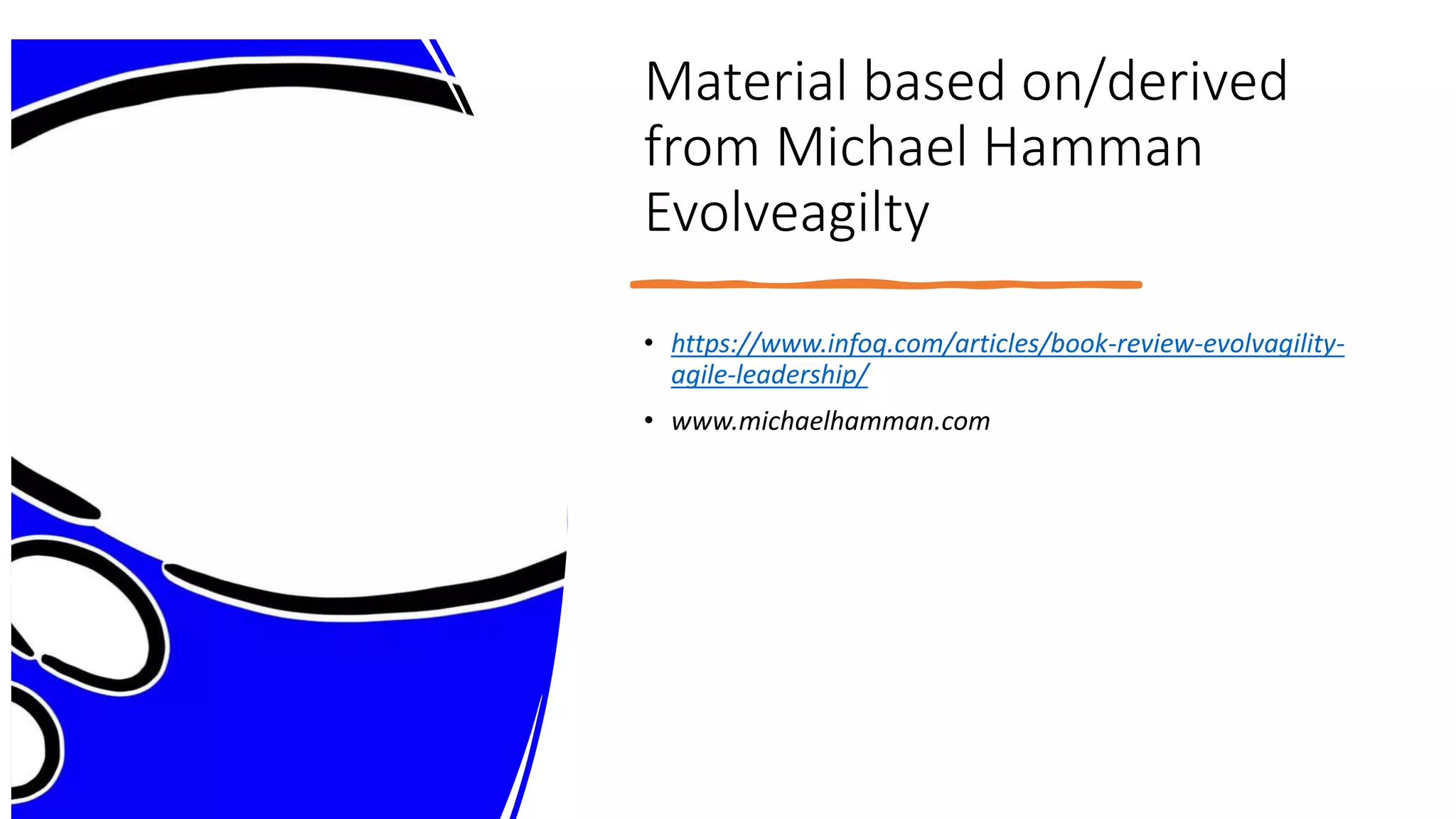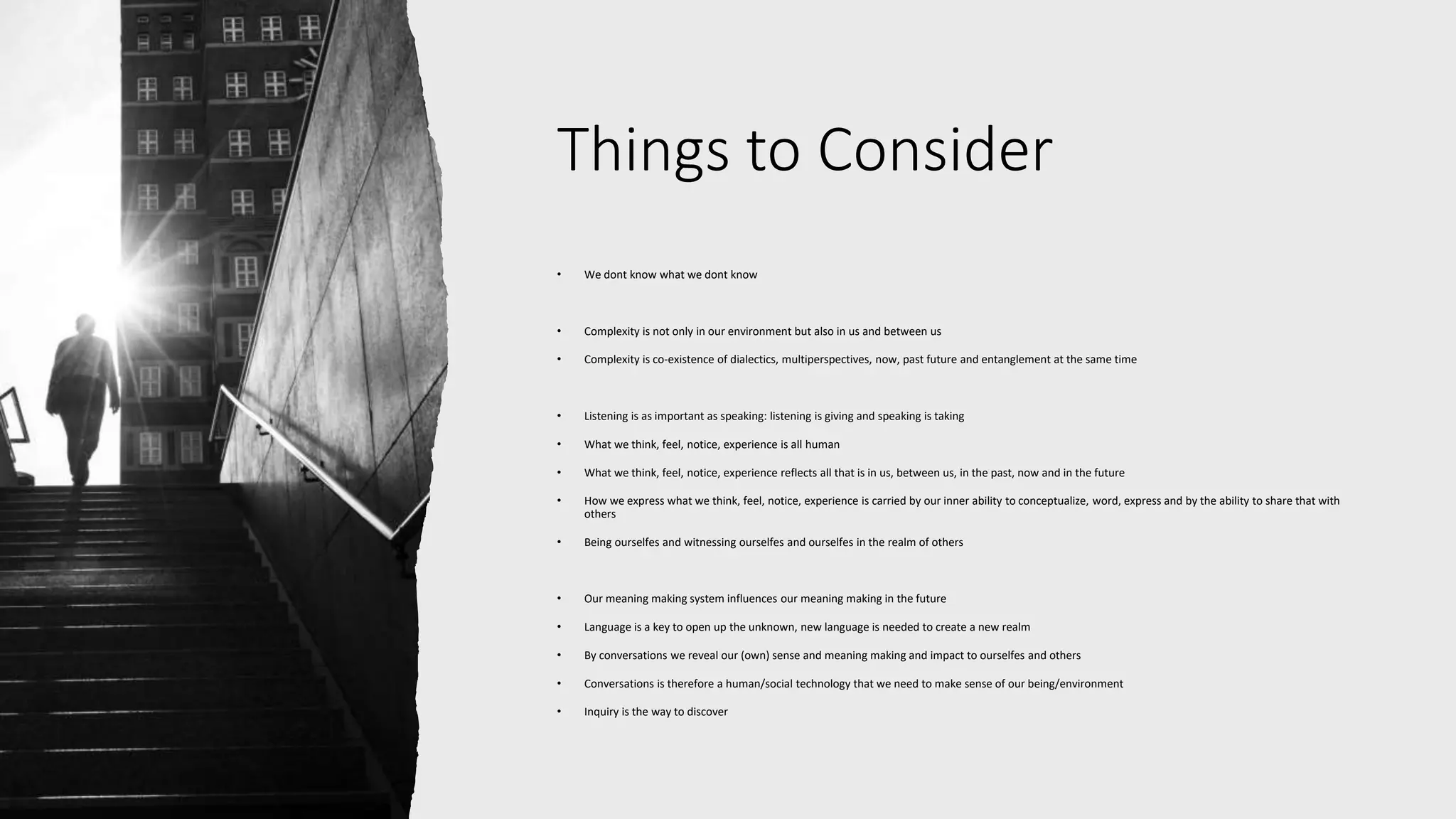This document outlines an interactive workshop on using deliberate developmental conversations (DDC) techniques to help participants uncover and reshape their meaning-making systems for navigating complexity. The workshop will explore inner complexity, sensing, meaning-making, and how developmental conversations can reveal these for oneself and others. Participants will have conversations using probing, provoking, supporting and reflecting questions to help reveal each other's sense-making systems. They will also practice using acknowledgment, articulation and reframing moves. The goal is for participants to gain insights into their own meaning-making and learn techniques that can be applied to future conversations.

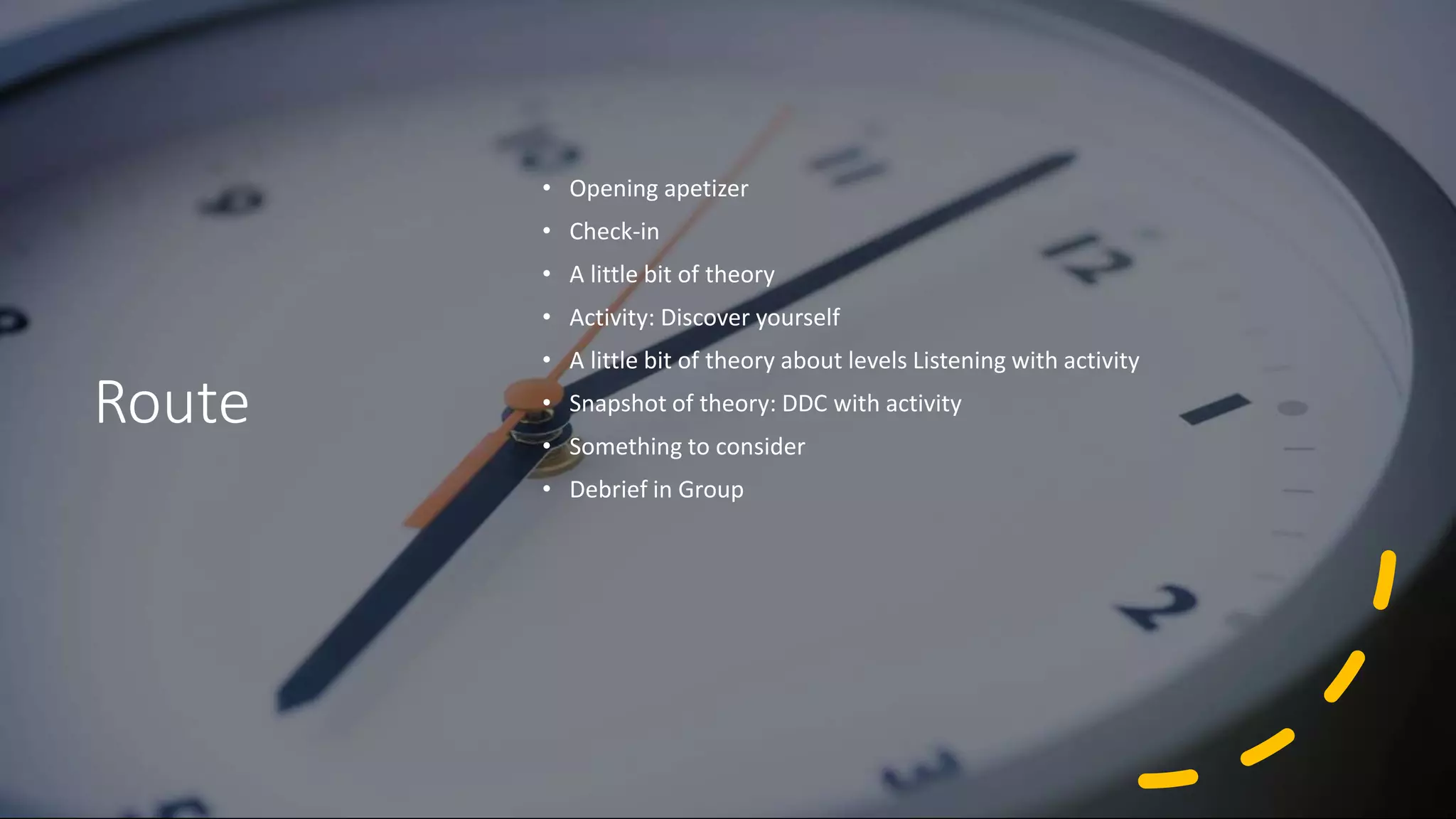
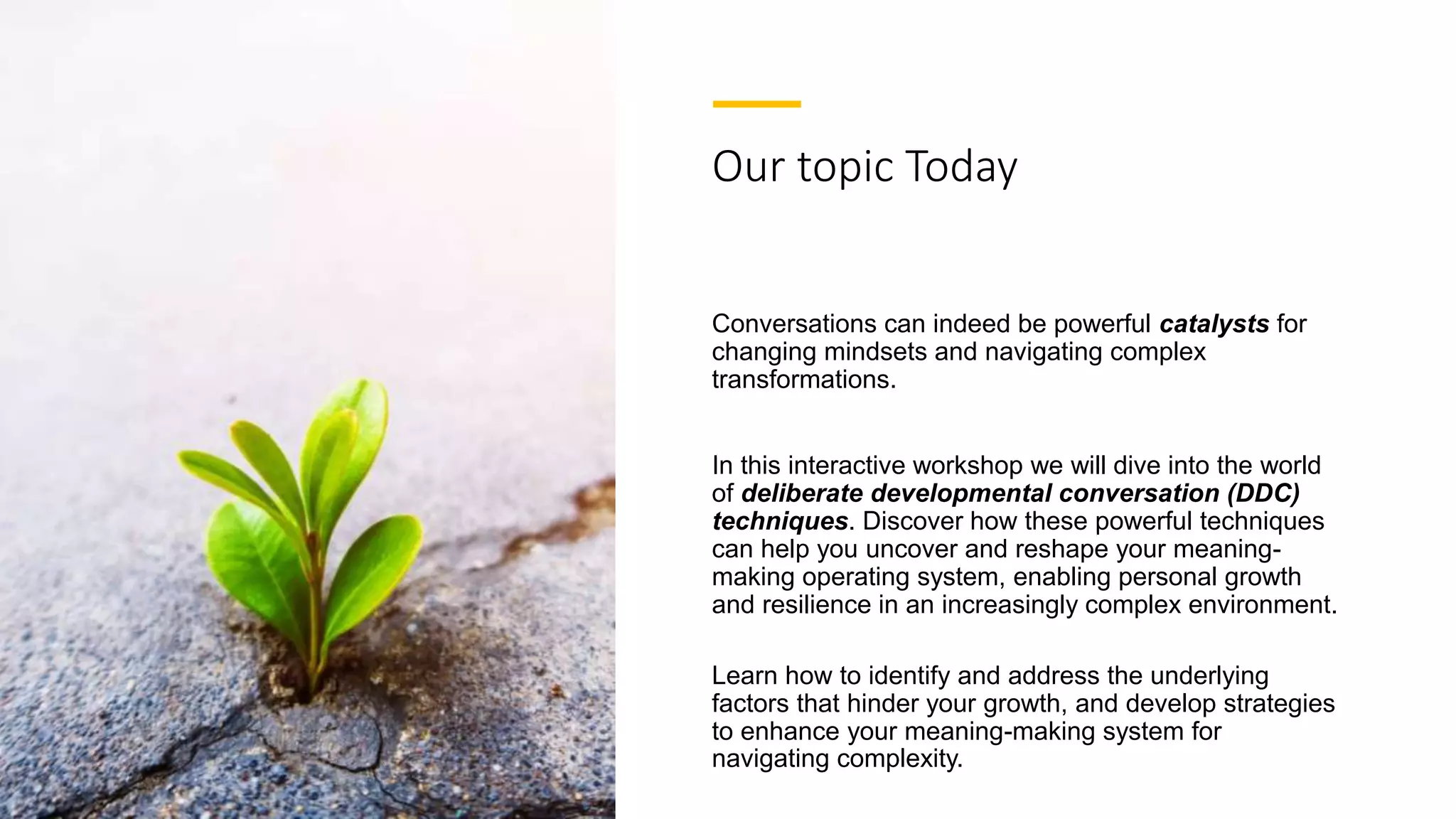
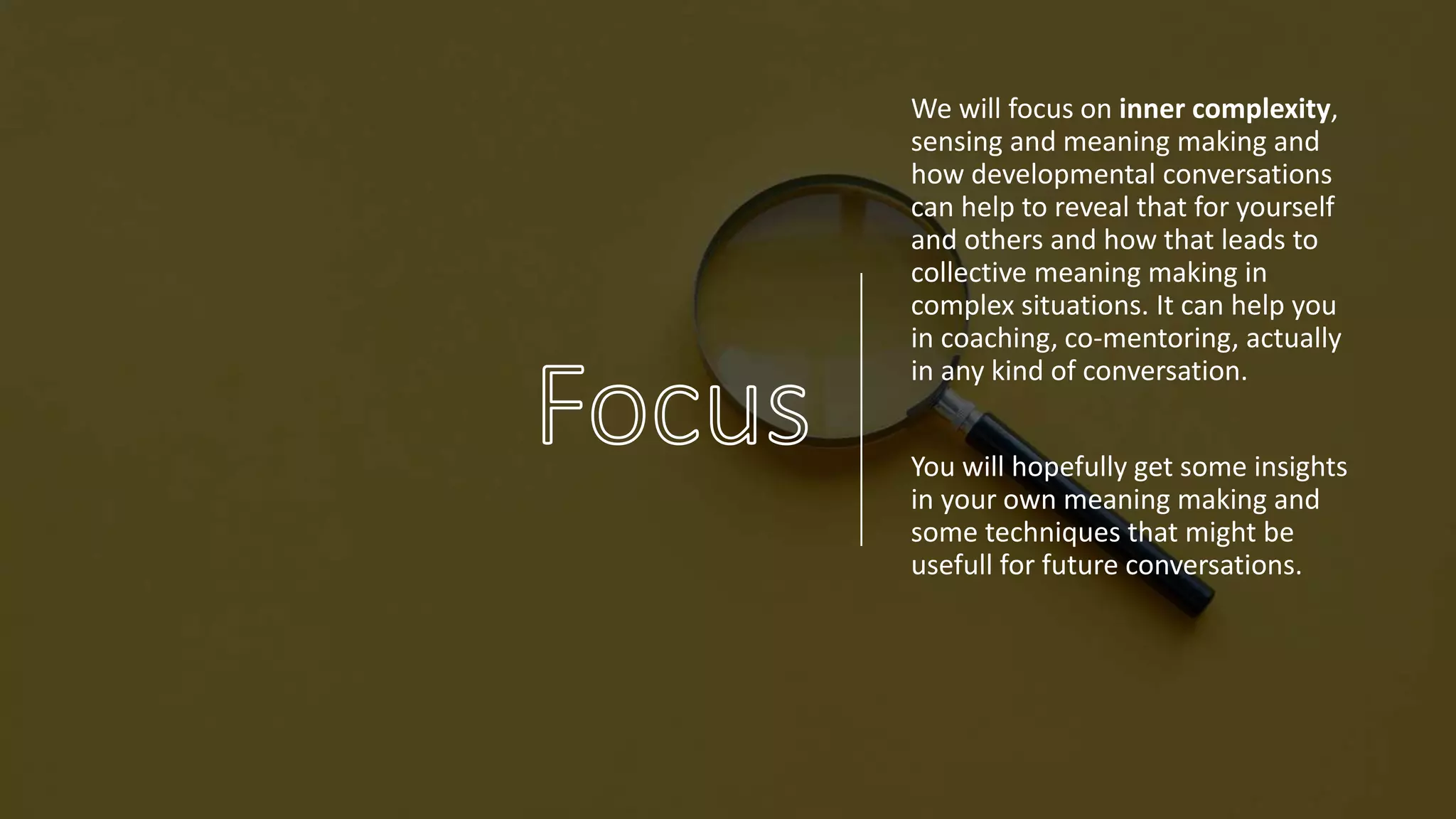
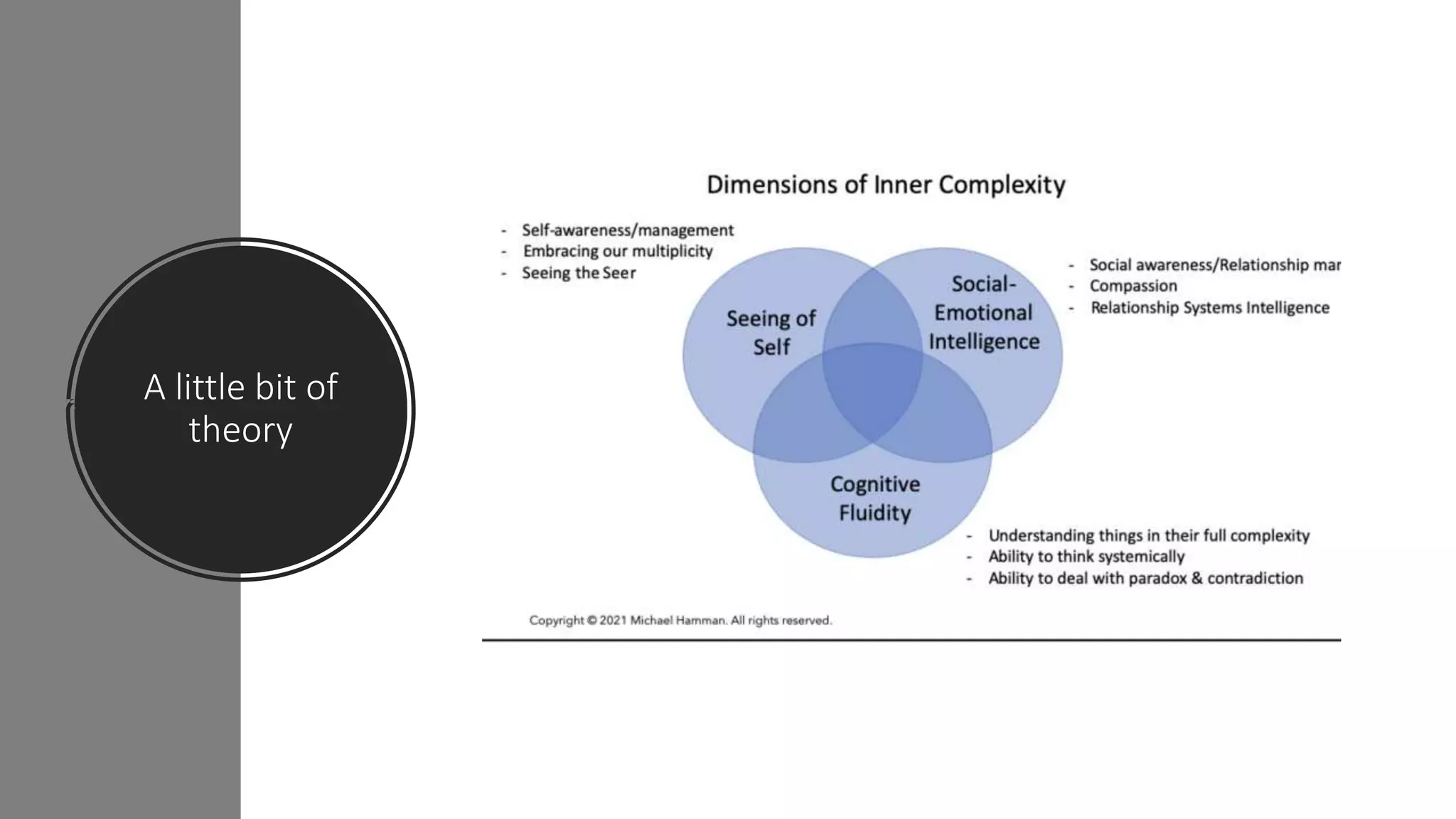
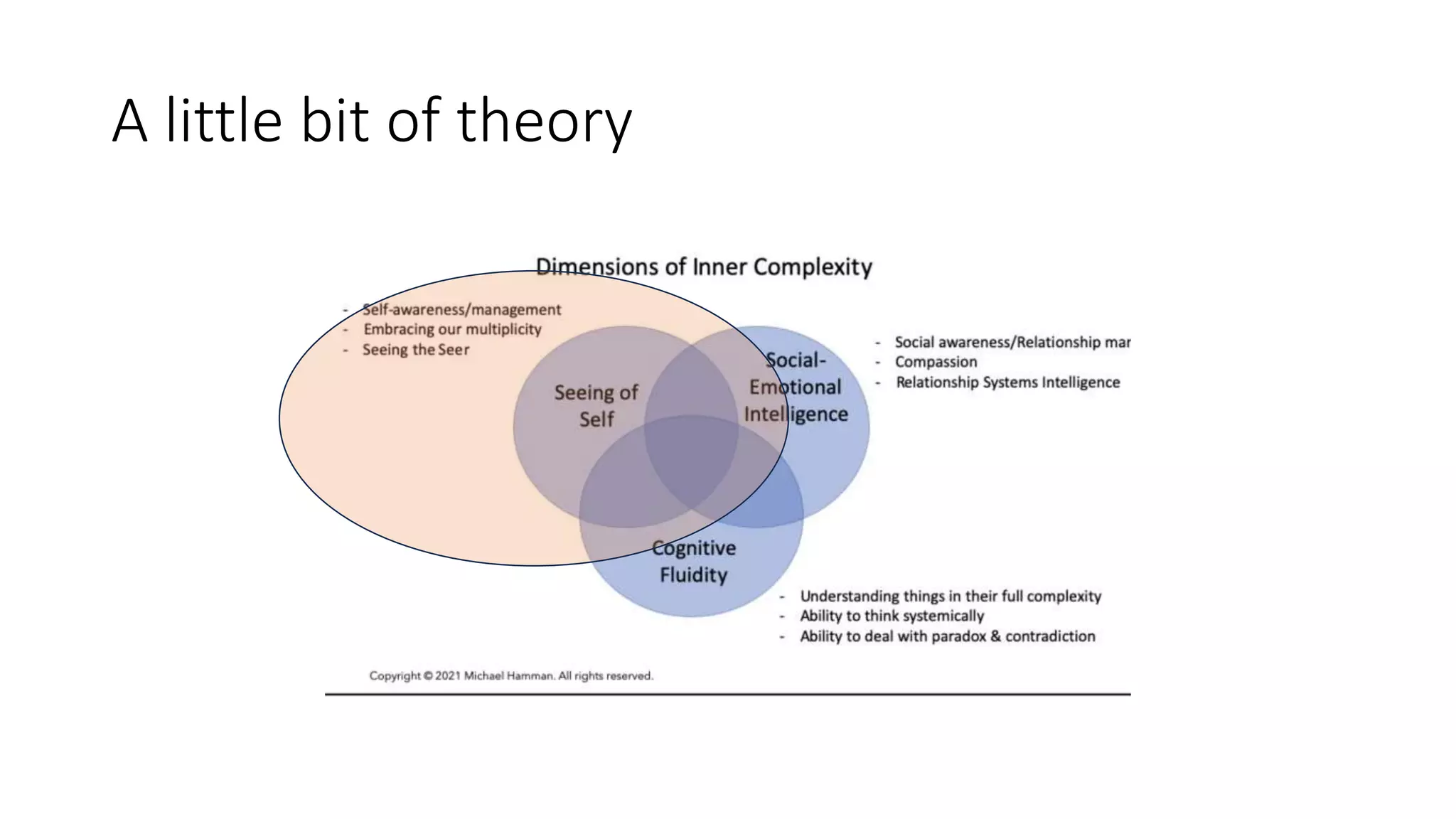
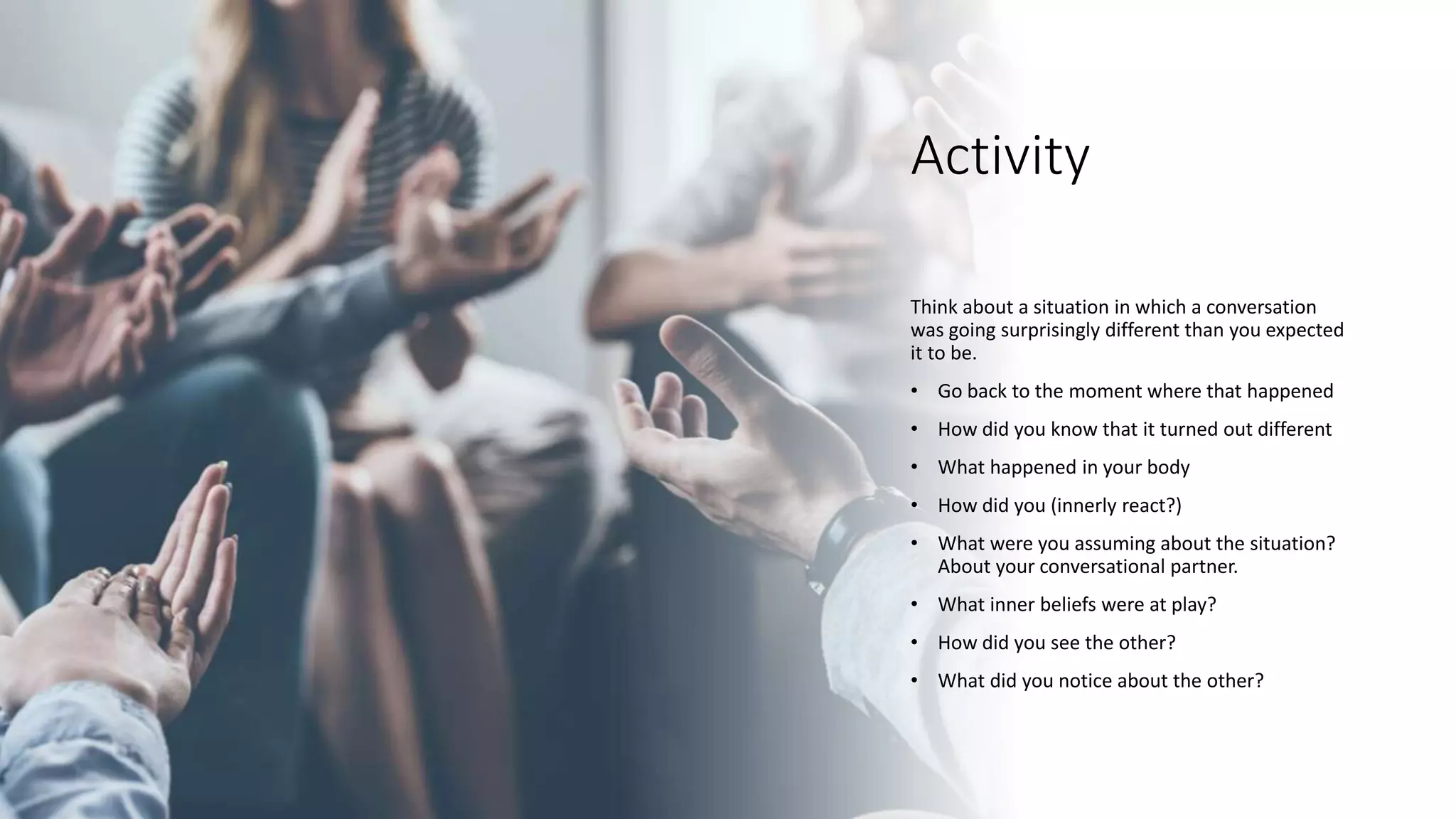
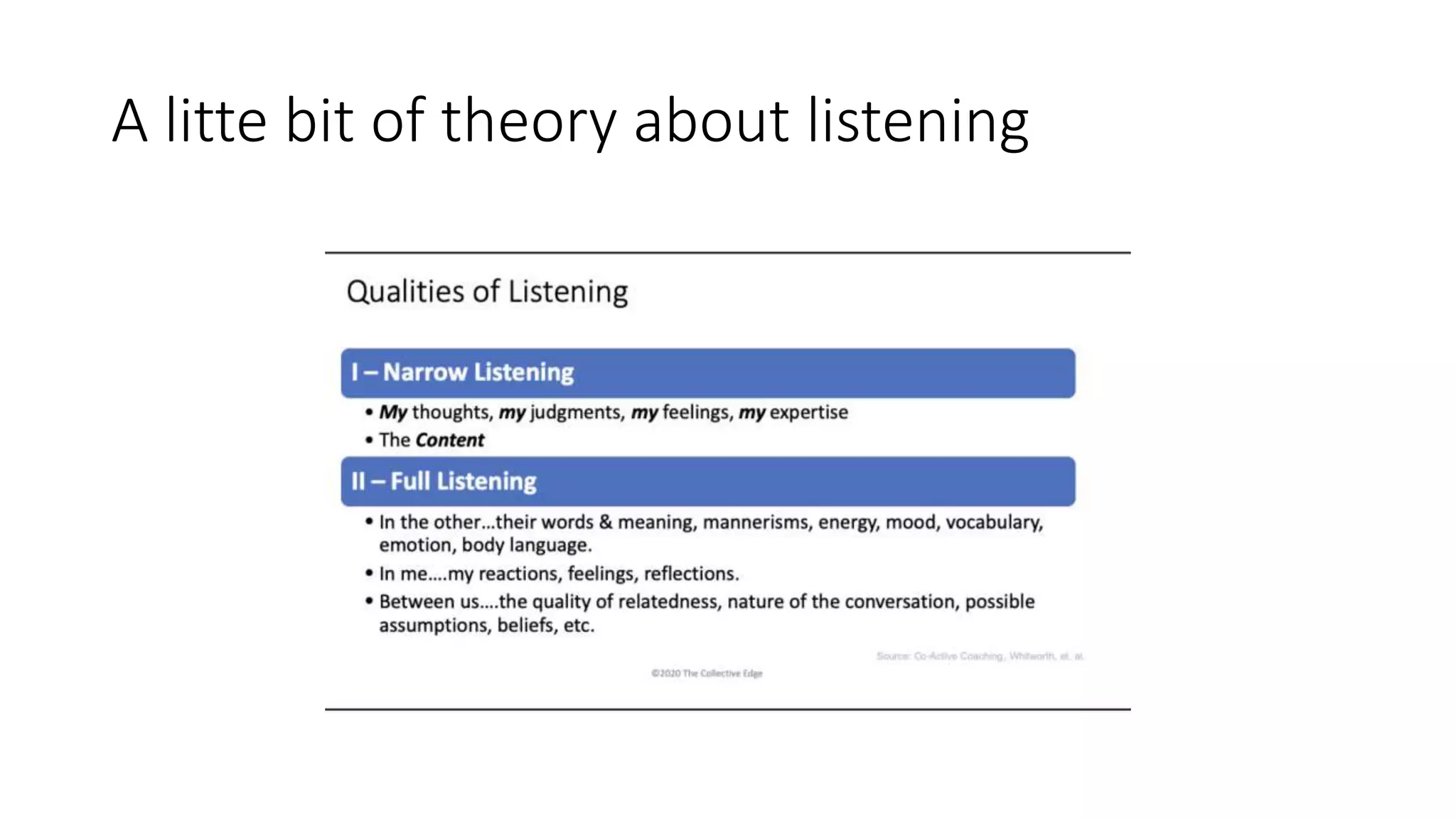
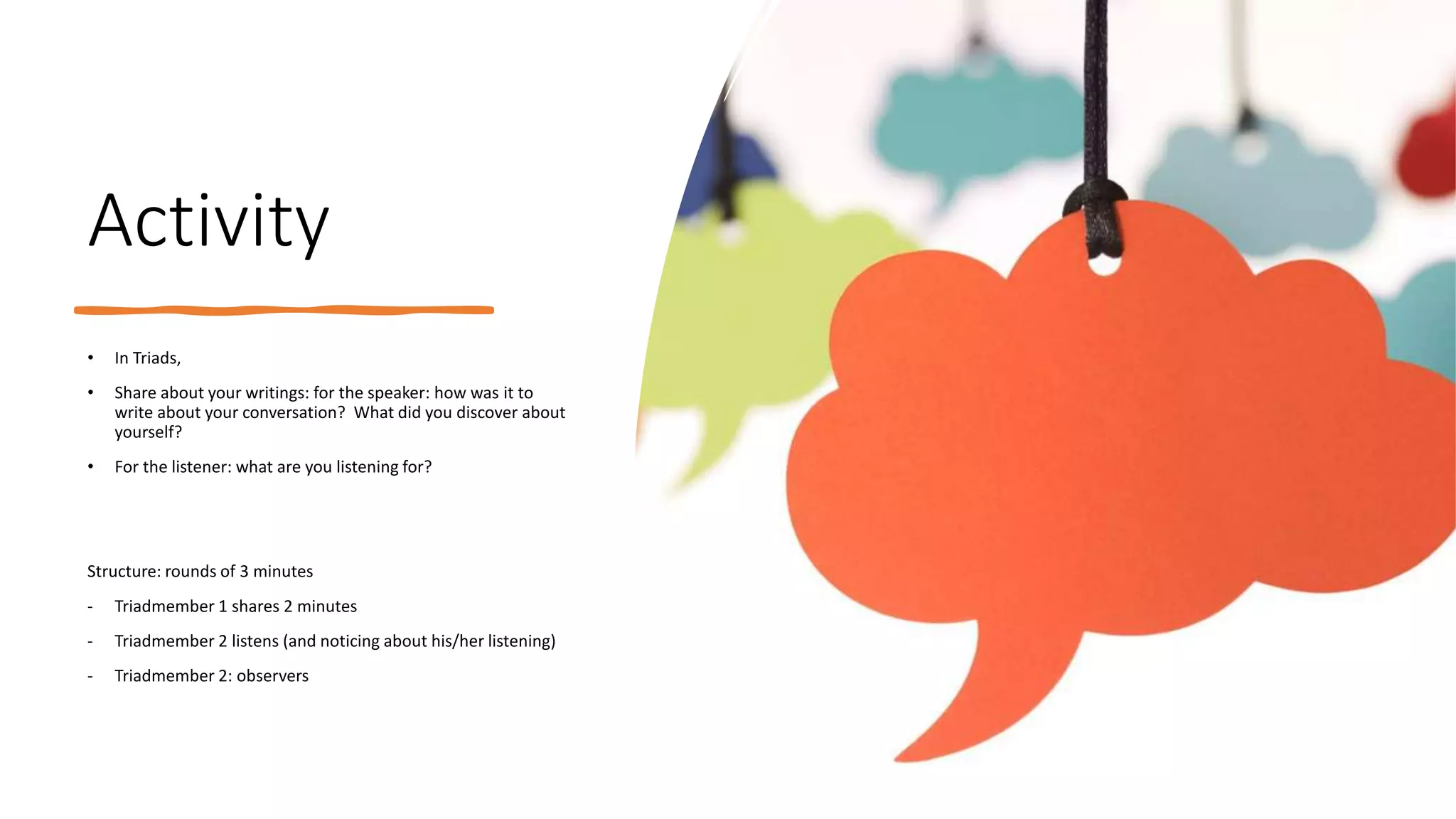
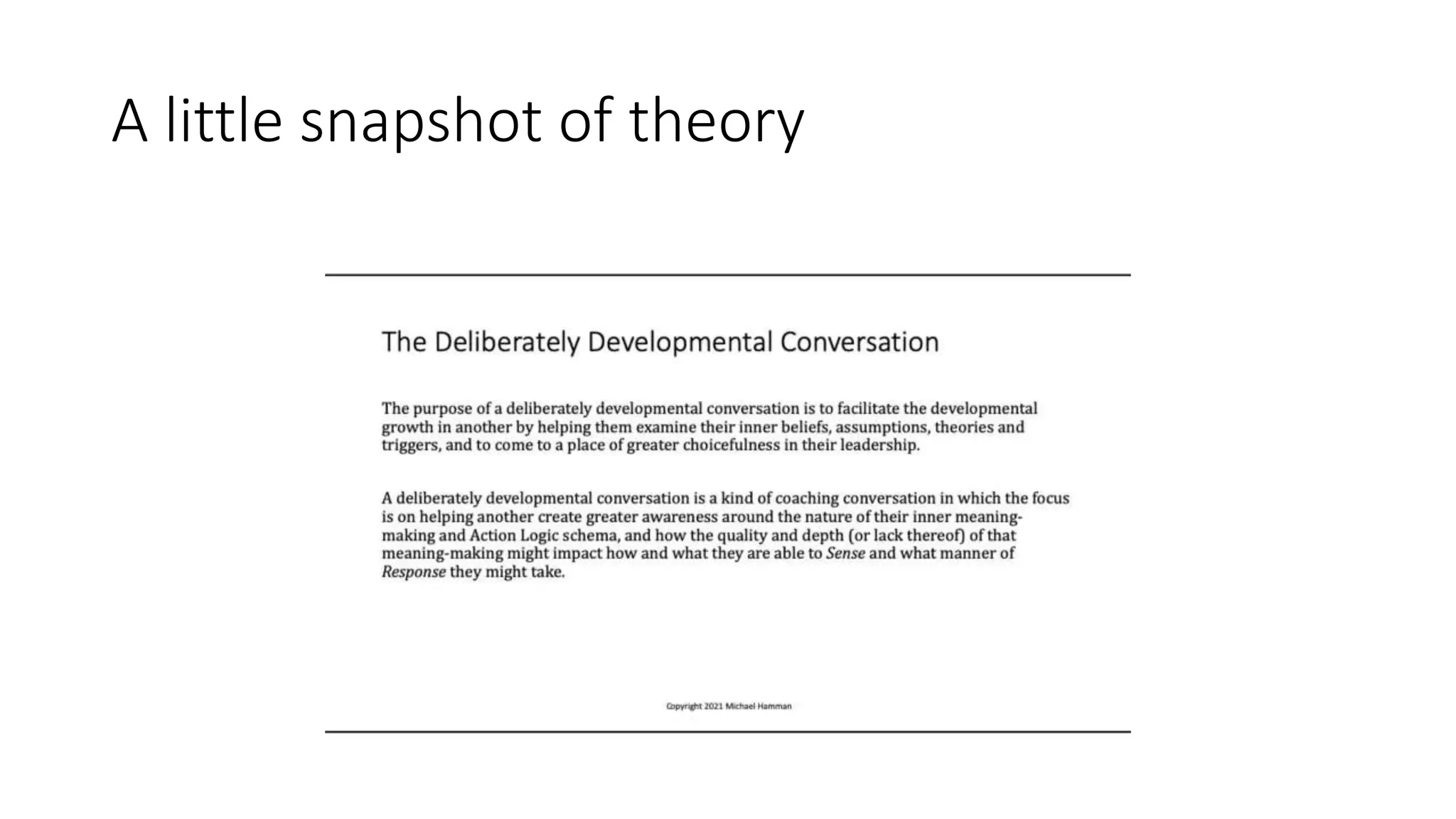
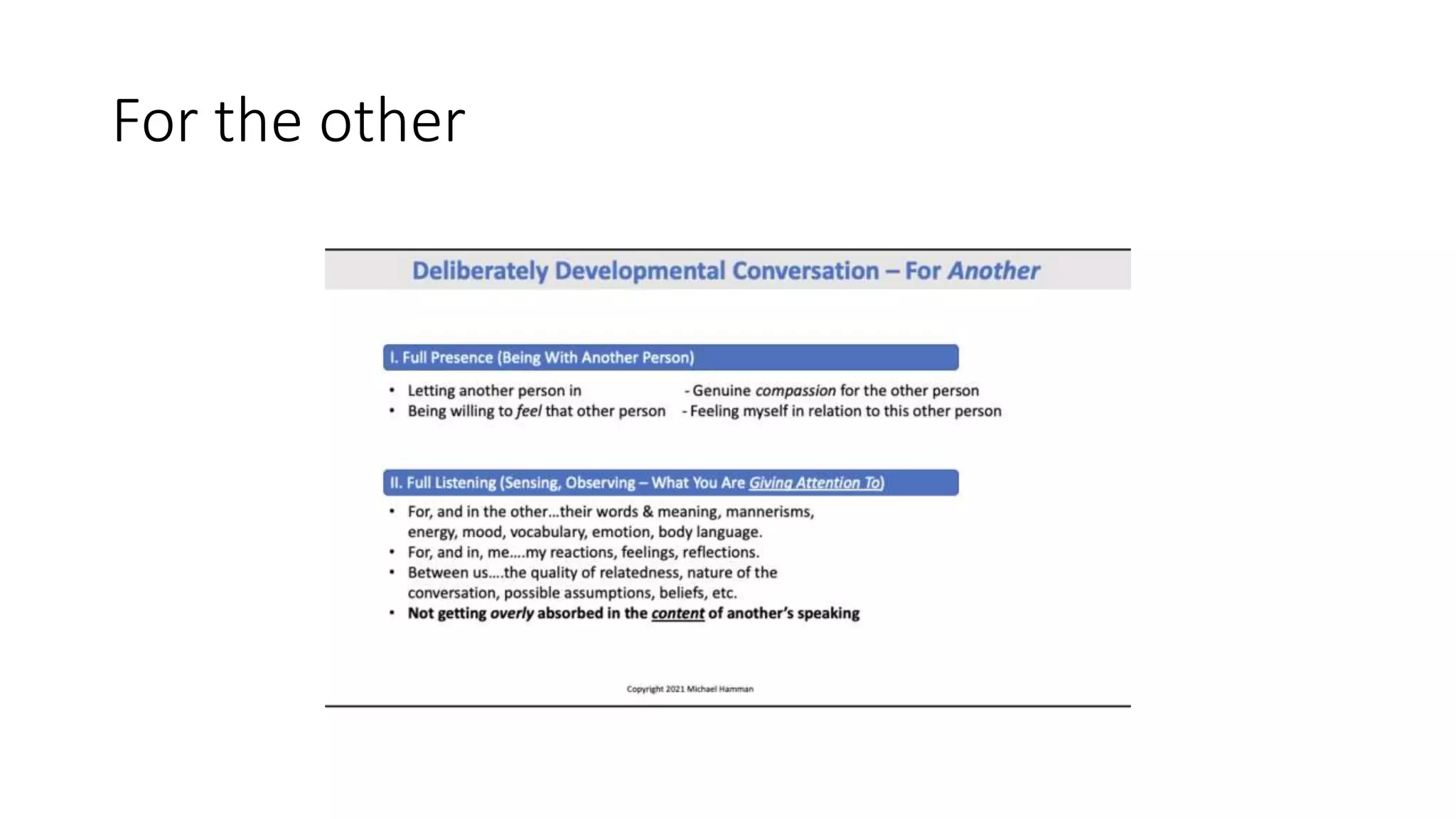

![Probing Questions
Probing questions help the other person probe into the
underlying meaning-making they may be bringing to the
current situation under discussion. Examples of probing
questions are:
• What did you make up about that?
• What is the most significant thing about that?
• What in your thinking makes [the situation] seem the way it is?
• What if what that other person did [which was upsetting to you] made perfect
sense?
• What might be the nature of that sense?](https://image.slidesharecdn.com/changetheconversationunleashyourpotentialinacomplexworld-230814144642-0610e8e2/75/Change-the-Conversation-Unleash-Your-Potential-in-a-Complex-World-pptx-13-2048.jpg)
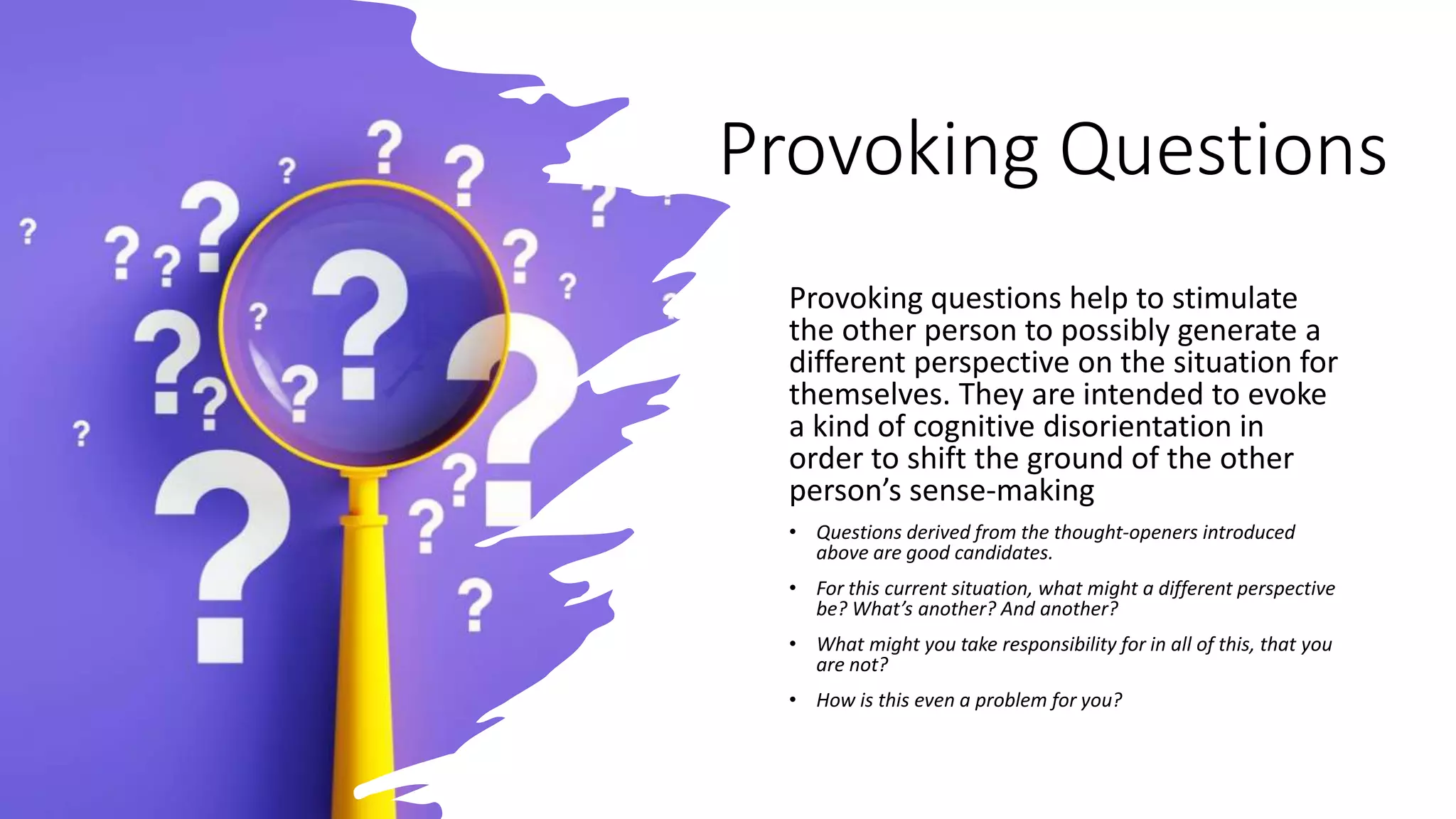
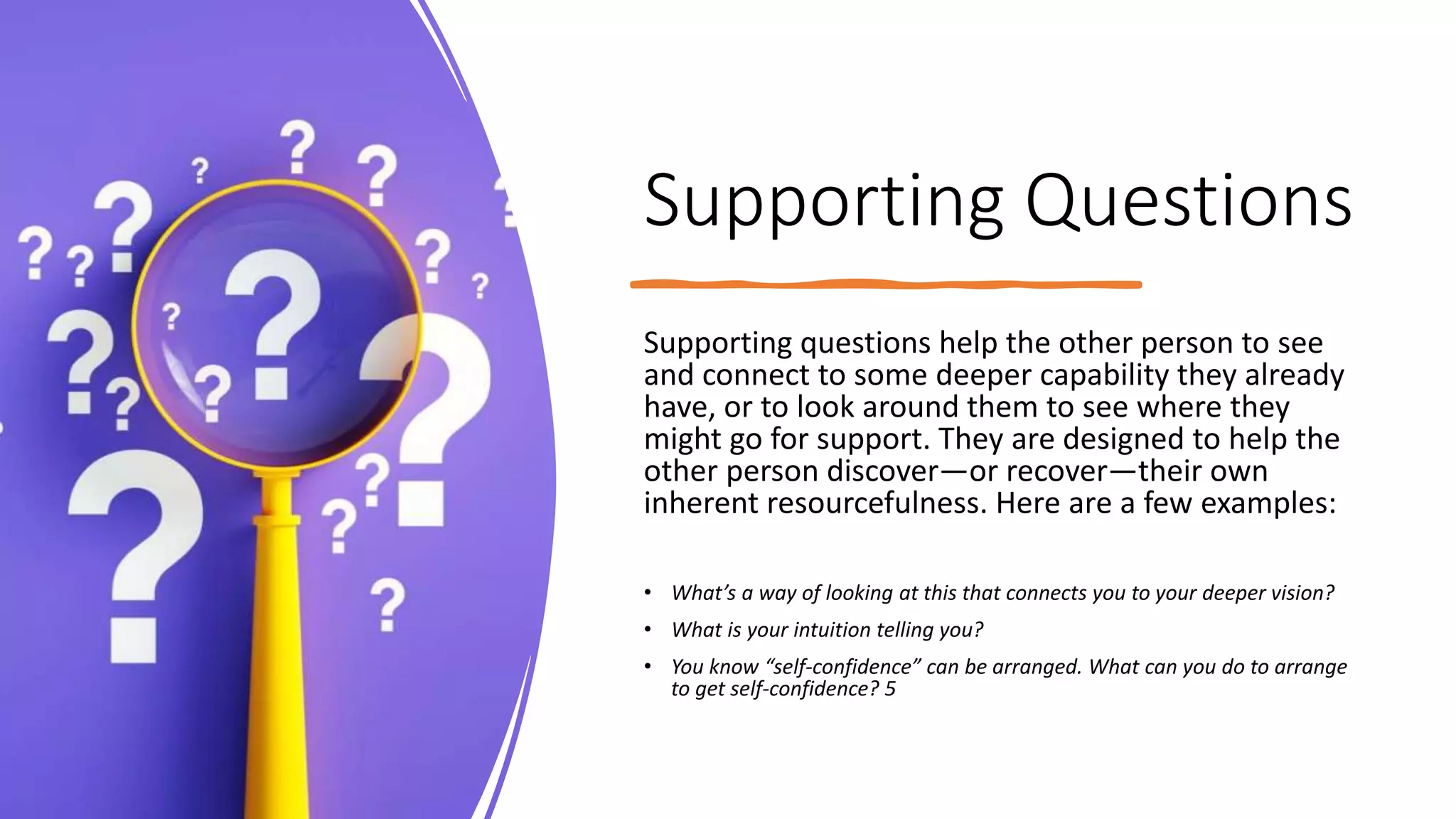
![Reflecting Questions
Reflecting Questions. Reflecting questions help
the person explicitly reflect on their own
meaning-making and Action Logic. For example:
• How might you describe the nature of the perspective that has you see it that way?
• What assumption might you be making about that?
• What needs to shift in how you are making meaning of this?
• How might this look from the perspective of [Action Logic]? What might be different if
you were to look at this from the perspective of [different Action Logic]?
• Asking questions is not the only conversational move in a deliberately developmental
conversation. The other moves are Acknowledgment, Articulation, and Reframing.](https://image.slidesharecdn.com/changetheconversationunleashyourpotentialinacomplexworld-230814144642-0610e8e2/75/Change-the-Conversation-Unleash-Your-Potential-in-a-Complex-World-pptx-16-2048.jpg)
